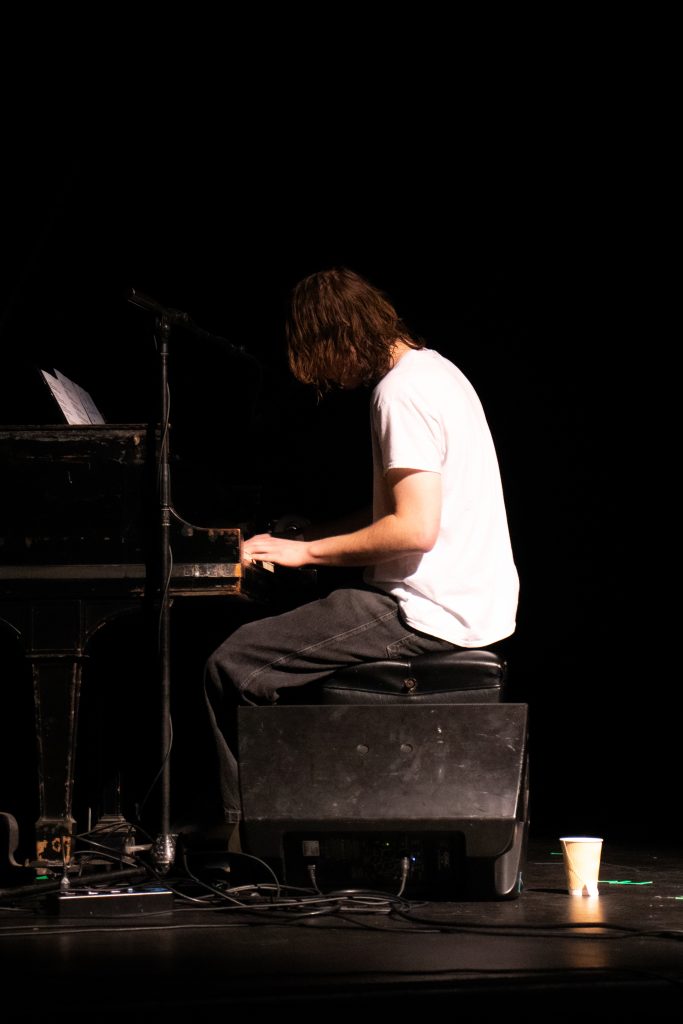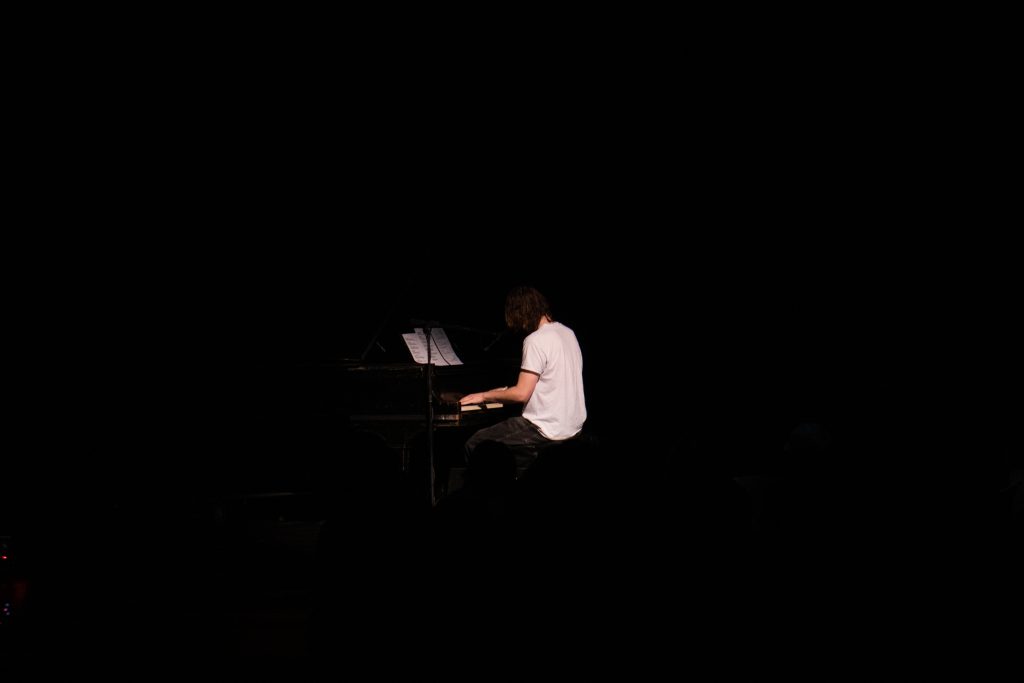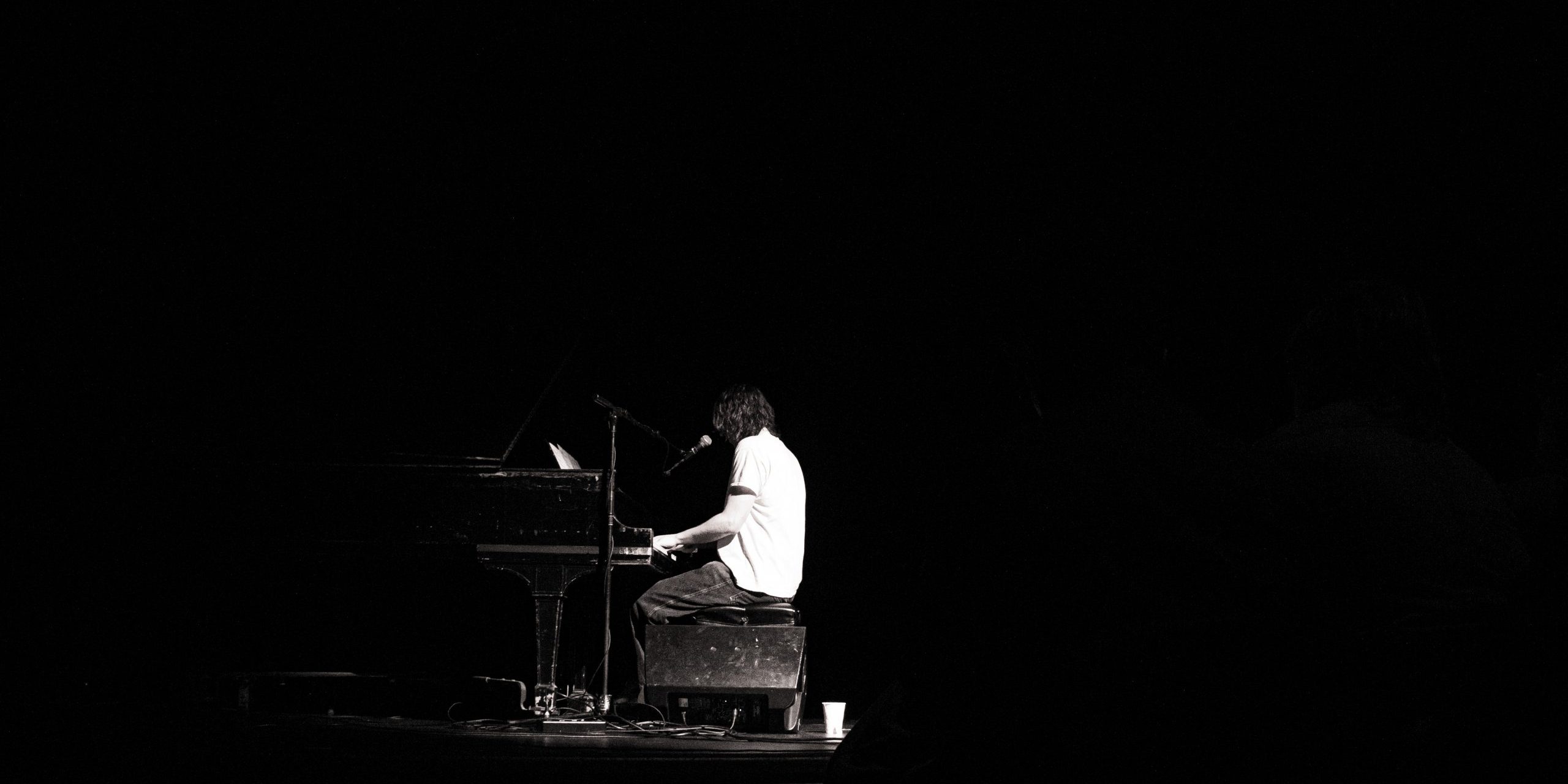I don’t believe in God. Or at least that’s what I’ve told myself. Especially as I’ve gotten older, the desire for God’s existence has waned into complete darkness. Any important answer that I need from this confusing, oftentimes cruel, existence is simply unknowable. For everything else, there’s science. It had been so long since I’d thought about God, an unbearable word that brings to mind images of emotionally manipulative evangelists and predatory gurus, that its articulation felt alien to me. Gaw-ud. Gôd. Göd. Gød. Góòōõd. Needless to say, I hadn’t been searching.

Then, late last year, I came across Cameron Winter’s debut album Heavy Metal. There are so many indie rockers out there, that it’s easy to get them all mixed up. Fortunately for Winter, he doesn’t have to try too hard to stand out. Best known as the frontman of the eclectic, classic rock influenced, alt-country band Geese, his voice is immediately recognizable as transcendent and virtuosic. His vocal depth is unheralded, and he can hit unexpected notes preternaturally, at the drop of a hat. When I first discovered Geese with their 2023 album 3D Country, I imagined the lead singer to be a brawny, barrel-chested, and bearded lumberjack type. Upon the release of Heavy Metal, on which the cover features the mop-topped Winter with a sallow face and sunken eyes, I was startled a bit to meet this artist face to face. This incongruity between the baritone voice I knew and this young but worn appearance was, admittedly, a comedy. Then I listened to the record, and this same discordance quickly clenched up into a punch in the gut.
Here’s where I rediscover God. It’s not an immediate revelation, even though the charm of Heavy Metal is instant. The openers “The Rolling Stones,” “Nausicaä (Love Will Be Revealed),” and “Love Takes Miles,” establish a record that is obviously extraordinary with heart-wrenching songwriting and scattered harmonies, maintaining melodies like jugglers in a circus act. Throughout the album, Winter consistently sounds like he’s about to lose control of himself and his orchestration, but this is an illusion. A narrative takes over with confessional and sensitive lyrics, where a powerful love surfaces to eventually dissolve into pain as youth unexpectedly becomes a thing of the past. He knows exactly how to deliver pathos, indirectly and from a skewed perspective. The energy of the record falls a bit, and the weight of Heavy Metal begins to feel unbearable. With songs like “Try as I May” and “We’re Thinking the Same Thing,” a mighty longing takes over, which, by the time “$0” surfaces, is brutally extinguished. “Fuck these people,” Winter sings, “Fuck these people, I’m not here.” Amid this disillusionment, which results in an insufferable feeling of worthlessness, things can’t get lower. It’s in this mouth of hell where Winter finds faith. “God is real,” he belts ecstatically. “I’m not kidding/ God is actually real.” The best way I can describe the power in this moment is by admitting that, after years upon years of ignoring God, Winter convinced me. He didn’t convince me that God exists, but he convinced me to think about it. I’m still thinking about it.

When, in January, Winter announced a tour to support the release of Heavy Metal, I immediately booked tickets. By this time, “God is Real” became a tagline of sorts. It sounded less and less like a revelation and seemed to be more of a brand which informed the visuals and copy for the tour. Plus, half of these gigs are scheduled to take place in churches. This isn’t to say that the music lost its sincerity, it’s more of a glimpse into my skepticism which allows doubt to break apart the strength and meaning in anything beautiful that I witness. Thankfully, for my own sake, I arrived at Barnsdall Gallery Theatre in East Hollywood, which shares a park with Frank Lloyd Wright’s masterly Hollyhock House. Leading up to the date, I often wondered how the show would sound; The album is very delicate, there are a lot of complex arrangements which feel so crucial to the gravity of the music. Any attempt to recreate it for a live audience seemed quixotic.
The seated venue was packed, so much so that I sat on the floor in the aisle. Both of the doors were crowded with latecomers who stood around for the rest of the show. It was a humble theater, blacked out with a single spotlight on the piano. Winter sat with his back to the audience, wearing a white shirt which radiated in chiaroscuro fashion on stage. There was an uncommon respect in the air, especially for a rock concert, where the audience didn’t even dare to whisper, so as not to interrupt the delicate and vulnerable performance. His overgrown hair hid his entire head and for the next forty-five minutes his posture barely shifted. The set started off with “Try as I May,” which felt appropriate for the show’s minimalist arrangement. It’s the one song that translates to solo piano, since it’s one of the few tracks on the album that’s straightforward in beat and delivery. Winter’s voice was predictably superhuman, and he captivated the crowd with an unprecedented force. Nobody pulled out their phone—not to check the time, not to record. The crowd was reverent, a newfound congregation. He played “Love Takes Miles” and showed off his dexterity with the piano, which captured the oddball, layered, and multi-instrumental composition uncannily with eighty-eight keys. Winter was locked in, his only engagement with the audience coming after “Drinking Age”: “That was a fucking sad one, wasn’t it?”
With “Nina + Field of Crops,” his dissonant play chromatically levitated into the heavens. Appropriately, “$0” followed and started off in meek fashion. Crepuscular notes welcomed the song, weathered from the fall of jaundiced leaves and cold rain, completely miserable. “Fuck these people.” Winter said. “I’m not here.” I was already on the floor, but my spirits were suddenly much lower. On the verge of tears, I needed a catharsis.

“God is real,” Winter sang. No, he cried. In fact, it might have been as simple as an explanation. Of course, I was expecting it, but its sincerity was unquestionable live. With the record, I’d somehow convinced myself that he was being ironic and funny. I pinched myself to remember that I wasn’t sitting in a chapel and Winter wasn’t proselytizing. “I wouldn’t joke about this.” He said, and I couldn’t stop listening. Two tears fell out of the corners of my two eyes. In the deep O of his “God,” I heard the voice of a believer. Of someone who gave his life away and, in that loss, found something greater instead. Something greater to live for. Something worth the gravity of heartbreak and death. For the past few months I thought this was Cameron Winter singing about God. Monday night, I discovered that this voice was, suddenly, calling from within me.




